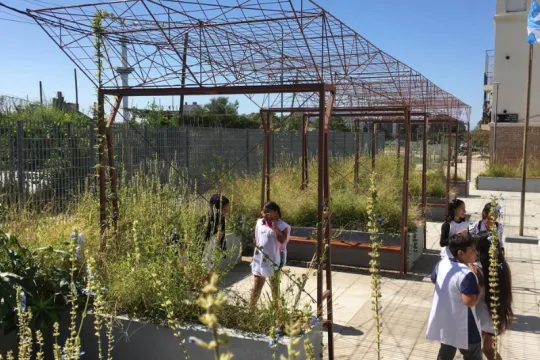
A girl rides her bicycle through the Pilar Community in Recife, Brazil. © WRI Brasil
2023 must be a turning point for Sustainable Development Goals (SDGs) amid challenges. They face setbacks due to conflicts, climate change, and the cascading effects of Covid-19. Secretary-General of the United Nations António Guterres recently urged all member states to make significant progress in 2023. Here are five insights on what that means for our cities and SDG 11: “Make cities and human settlements inclusive, safe, resilient and sustainable.”
Urgent action is needed to prevent big misses by 2030
The recently published 2023 SDGs Report that serves as a midterm assessment of the 2030 Agenda emphasizes the need to address existing gaps. It highlights the need for access to technology, knowledge and resources. When looking at SDG 11, “only two of the four targets with adequate data to assess current progress show moderate distance to target. The other half of the targets are identified as being far from target”, says UN HABITAT’s Rescuing SDG 11 for a resilient urban planet report.Major urban policy shifts are essential for SDG 11 success
To achieve SDG 11 comprehensive urban policy reforms are needed. Efforts should prioritize inclusive, resilient, and sustainable urban development, ensuring access to basic services, affordable housing, efficient transportation and green spaces for all. Current challenges include improving the situation of over a billion people living in urban slums, limited public transport, air pollution, and scarce public spaces, with vulnerable groups disproportionately affected, especially in developing countries."Localizing" SDG 11 targets is crucial for transformative change
Countries and cities must improve their ability to localize goals to achieve SDG 11 targets until 2030, according to the Rescuing SDG 11 report. Transformative action is required, as failing to meet these targets will profoundly impact billions of lives. Prevailing urban inequalities and insufficient civil society engagement hinder sustainable urban planning across various regions, which calls for a transformative approach to reduce disparities and enhance access to services and resources.We should leave no place or person behind
The SDG mantra "leave no one behind" extends to SDG 11, emphasizing the importance of not leaving any place behind in achieving sustainable urban development. This vision aims to reduce inequalities and vulnerabilities to ensure access to services, resources, and opportunities for all in cities.Addressing urban challenges requires collective efforts
The 2023 SDGs midterm review calls for collective global efforts to address urban challenges and ensure transformative change. Governments, communities, and civil societies must work together to implement adequate urban policies and practices, uplifting the quality of life for billions of people worldwide.
The original article is available on the UNU-EHS website.

